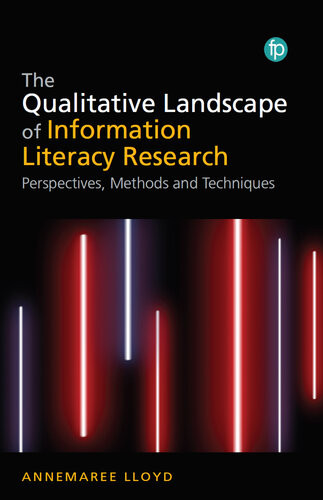

Most ebook files are in PDF format, so you can easily read them using various software such as Foxit Reader or directly on the Google Chrome browser.
Some ebook files are released by publishers in other formats such as .awz, .mobi, .epub, .fb2, etc. You may need to install specific software to read these formats on mobile/PC, such as Calibre.
Please read the tutorial at this link: https://ebookbell.com/faq
We offer FREE conversion to the popular formats you request; however, this may take some time. Therefore, right after payment, please email us, and we will try to provide the service as quickly as possible.
For some exceptional file formats or broken links (if any), please refrain from opening any disputes. Instead, email us first, and we will try to assist within a maximum of 6 hours.
EbookBell Team

4.7
66 reviewsA research methods textbook focussed specifically on information literacy Information literacy has become established as a core research topic in the library and information science field. An extensive range of research has been undertaken and there is a burgeoning corpus of literature created by academic researchers, library practitioners and other researchers who explore information literacy through their own disciplinary lens. Investigations into information literacy have drawn from a variety of methodologies and applied a range of methods and techniques to explore information literacy as it is enacted in a wide range of contexts. Information Literacy Research describes this research landscape, identifying the core qualitative approaches applied in the research of information literacy and less used or innovative applications. To achieve balance, the book also addresses, but to a lesser extent, quantitative and mixed method approaches to information literacy research. The book identifies key theories, methodologies and methods that have been used to shape our knowledge of information literacy and the approaches we apply to its investigation.